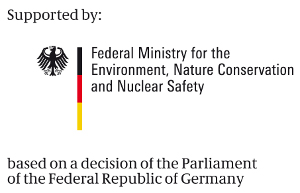About Solar Atlas for the Mediterranean
|
The "Solar Atlas for the Mediterranean" is a portal for global horizontal and direct normal irradiance data for the southern and eastern Mediterranean region. The project will bring high resolution (1km), long term coverage (20 years 1991-2010) data on the available resources for the whole target region covering the countries Syria, Jordan, Israel, Lebanon, Egypt, Libya, Tunisia, Algeria, Morocco, Palestine National Authority, Mauretania and Turkey. The resource data will be derived from Earth Observation satellite data, based on published and transparent methodologies and the data will be validated with existing ground measurements in the region. The database will be provided by SOLEMI and Helioclim-3 (SoDa) sources - Global Horizontal Irradiation (GHI) and Direct Normal Irradiation (DNI). The data will be made available via a distributed information system which will ensure the ease of access to the data. The free access to the data will include historical, annual and monthly averages, and more detailed data products and services will remain the domain of commercial data providers. |
The project is supported by International Climate Initiative of the Germany Ministry of Environment, Nature Conservation and Nuclear Safety. Since 2008, the International Climate Initiative (ICI) of the Federal Ministry for the Environment, Nature Conservation and Nuclear Safety (BMU) has been financing climate projects in developing and newly industrialised countries, as well as countries in transition. Based on a decision taken by the German parliament (Bundestag), EUR 120 million from the auctioning of emission allowances is available for use by the Initiative annually. By means of this innovative financial mechanism, BMU effectively contributes towards emission reduction and adaptation to climate change. This new form of climate cooperation complements the existing development cooperation work of the German Government. The ICI is active in three areas: promoting climate-friendly economies, fostering measures to adapt to the effects of climate change and ensuring the conservation and sustainable use of natural carbon reservoirs/ Reducing Emissions from Deforestation and Forest Degradation (REDD+). When selecting projects, BMU attaches great importance to developing innovative, multipliable and transferable approaches whose results are maintained long after completion of the project. Targeted cooperation with partner countries provides the ICI with an important impetus for an international climate agreement. The ICI also makes a significant contribution towards the international dialogue on creating a climate change financial architecture. Project Consortium |
|
|
![[LOGO]](images/solar-med-atlas.logo.png)
